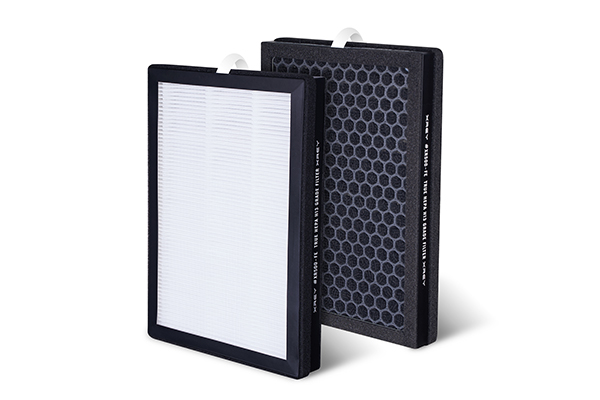
Existing Drug That Inhibits COVID-19 Virus Identified
- Connexions
- 2021-02-03
- 2278
A novel computational drug screening strategy combined with lab experiments suggest that pralatrexate, a chemotherapy medication originally developed to treat lymphoma, could potentially be repurposed to treat COVID-19. Haiping Zhang of the Shenzhen Institutes of Advanced Technology in Shenzhen, China, and colleagues present these findings in the open-access journal PLOS Computational Biology.
With the COVID-19 pandemic causing illness and death worldwide, better treatments are urgently needed. One shortcut could be to repurpose existing drugs that were originally developed to treat other conditions. Computational methods can help identify such drugs by simulating how different drugs would interact with SARS-CoV-2, the virus that causes COVID-19.
To aid virtual screening of existing drugs, Zhang and colleagues combined multiple computational techniques that simulate drug-virus interactions from different, complementary perspectives. They used this hybrid approach to screen 1,906 existing drugs for their potential ability to inhibit replication of SARS-CoV-2 by targeting a viral protein called RNA-dependent RNA polymerase (RdRP).
The novel screening approach identified four promising drugs, which were then tested against SARS-CoV-2 in lab experiments. Two of the drugs, pralatrexate and azithromycin, successfully inhibited replication of the virus. Further lab experiments showed that pralatrexate more strongly inhibited viral replication than did remdesivir, a drug that is currently used to treat some COVID-19 patients.
These findings suggest that pralatrexate could potentially be repurposed to treat COVID-19. However, this chemotherapy drug can prompt significant side effects and is used for people with terminal lymphoma, so immediate use for COVID-19 patients is not guaranteed. Still, the findings support the use of the new screening strategy to identify drugs that could be repurposed.
"We have demonstrated the value of our novel hybrid approach that combines deep-learning technologies with more traditional simulations of molecular dynamics," Zhang says. He and his colleagues are now developing additional computational methods for generating novel molecular structures that could be developed into new drugs to treat COVID-19.
-
 2022-04-26Are air purifiers environmentally friendly ?
2022-04-26Are air purifiers environmentally friendly ? -
 2022-04-26The importance of wearing a mask correctly
2022-04-26The importance of wearing a mask correctly -
 2022-04-27Connexions Air H13 True HEPA Filters
2022-04-27Connexions Air H13 True HEPA Filters -
 2022-04-29What is the use of anion function of air purifier?
2022-04-29What is the use of anion function of air purifier? -
 2022-05-08Standardize the wearing of masks, children should not be missed!
2022-05-08Standardize the wearing of masks, children should not be missed! -
 2022-05-16Hazy days, air purifiers are useful?
2022-05-16Hazy days, air purifiers are useful? -
 2022-05-16Attention everyone! Don't buy fake FFP2 masks! How do we identify?
2022-05-16Attention everyone! Don't buy fake FFP2 masks! How do we identify? -
 2022-05-17Pay attention to secondary pollution when using air purifiers
2022-05-17Pay attention to secondary pollution when using air purifiers -
 2022-05-17TOP5 pollutants that the purifier can purify
2022-05-17TOP5 pollutants that the purifier can purify
-
 2020-06-02Why do Face Masks Matter With This Coronavirus
2020-06-02Why do Face Masks Matter With This Coronavirus -
 2020-06-02How to Wear Mask
2020-06-02How to Wear Mask -
 2020-06-02Three Principles of Choice of Masks
2020-06-02Three Principles of Choice of Masks -
 2020-06-022020 Situation of Mask Market
2020-06-022020 Situation of Mask Market -
 2020-06-17What other preventative measures can you take to protect yourself from airborne substances?
2020-06-17What other preventative measures can you take to protect yourself from airborne substances? -
 2020-06-08The Advantage of Disposable Face Masks
2020-06-08The Advantage of Disposable Face Masks -
 2020-06-093 Ply Disposable Face Mask & Soft & Comfortable Ear Loop
2020-06-093 Ply Disposable Face Mask & Soft & Comfortable Ear Loop -
 2020-06-17What are the regulations for surgical face masks?
2020-06-17What are the regulations for surgical face masks? -
 2020-06-09Do I need to wear a face mask if I am quarantined?
2020-06-09Do I need to wear a face mask if I am quarantined?
CONTACT US


Connexions Technology (Dongguan) Ltd.
We are always providing our customers with reliable products and considerate services.
If you would like to keep touch with us directly, please go to contact us
